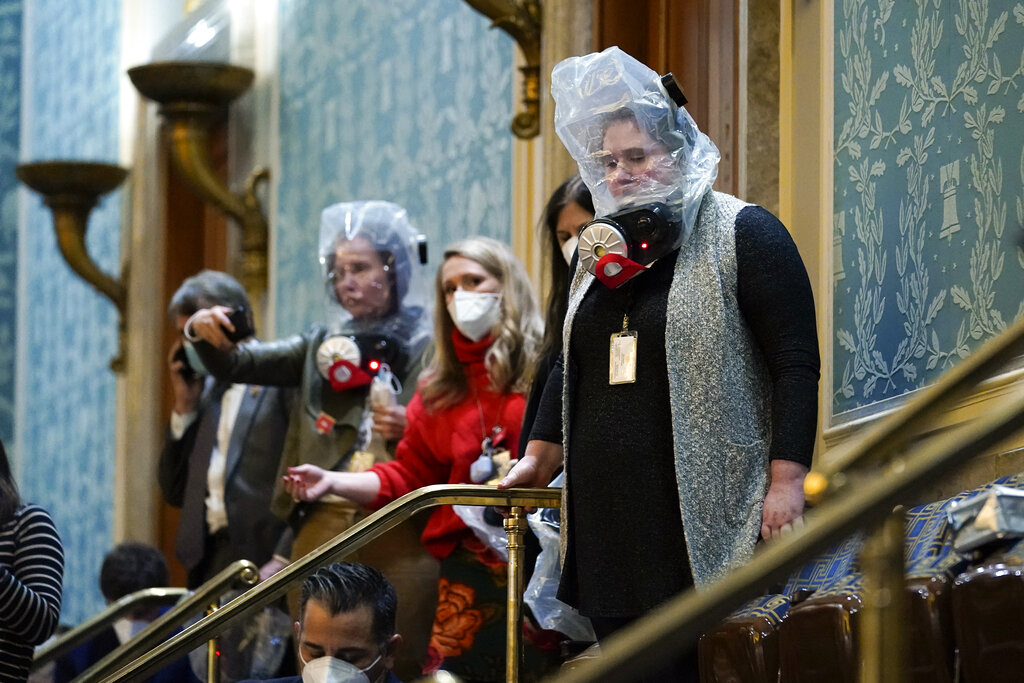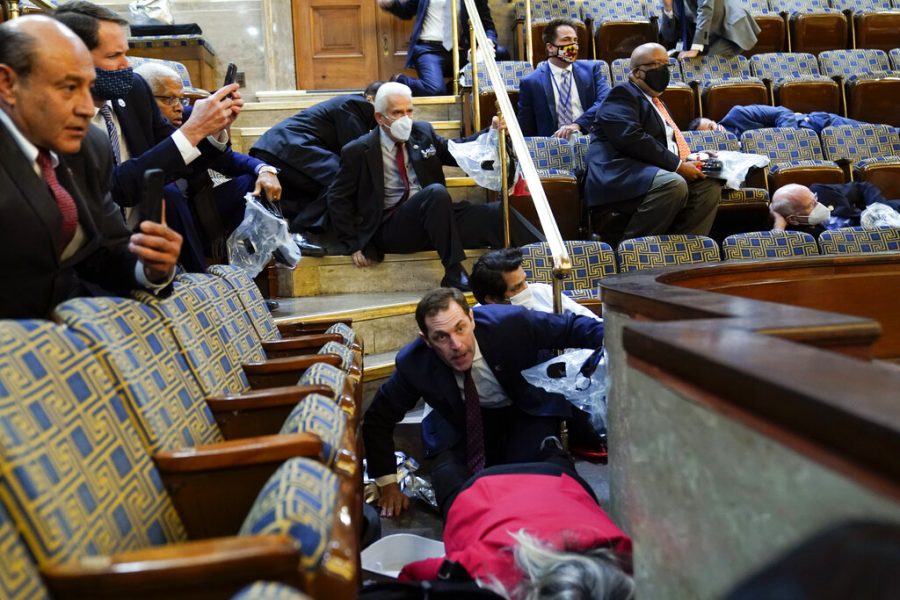The time to act is—and has always been—now
After the violence at the Capitol, will lawmakers take bolder steps towards gun control reform?
AP Images
Members of Congress shelter in the House gallery as rioters try to break into the U.S. Capitol on Wednesday, Jan. 6
As violent insurrectionists stormed the Capitol last Wednesday, I, like so many others, scrolled through social media.
Remembering that day feels like thinking back on a recurring nightmare—the MAGA hats, Confederate flags, hand-wringing tweets, and irate late-night hosts all usher in a sinking feeling of déjà vu. But certain images stick out clearly in my mind: those depicting members of Congress taking cover on the floor of the House gallery, fearing for their lives.

I—and too many students in my generation—know the feeling.
Last November, the Winnetka campus went under lockdown. Yes, the alarm was inadvertently activated. No, there was never an active threat. As we’re reminded year after year, that afternoon could have ended so differently.
However, we didn’t know any of this in the moment.
I remember texting my family, trying not to think about the possibility that I might never see them again. Because the events echoed what I’d seen on the news so many times: the lockdown alarm, the crackle of the PA system, the crouching down and trying not to make a sound.
During the lockdown, I sheltered in the auditorium with other students and teachers who had been watching a Literary Fest speaker. My friends and I texted to avoid making noise. We wondered what we would do if an active shooter entered the room. Hide under the chairs? Try and scramble backstage? Make a run for it?
Some of the most powerful people in the United States now know firsthand what it’s like to feel this paralyzing uncertainty. To hide out in a formerly safe space, with no idea when (or if) you’ll get to leave.
But will this have an impact on the way our lawmakers approach gun legislation?
We’ve been around the block enough times to know that we can’t rely on our lawmakers, even those who share our worst experiences, to make change.
History says not so fast. In 2017, Representative Steve Scalise was shot at a congressional baseball practice by a man with a semiautomatic assault rifle. A year later, Scalise claimed that the incident made his support of gun rights “as ardent as ever.”
Of course, gun violence in the United States is much more common in classrooms than in Congress. Scalise was the seventeenth Congressional representative to ever be shot in office; there were 45 school shootings in 2019 alone, each resulting in multiple injuries and/or fatalities.
In 2018, politicians’ “thoughts and prayers” dominated the conversation following the Marjory Stoneman Douglas High School shooting.“This is one of the moments where we need to step back and count our blessings,” said former House Speaker Paul Ryan. “No child should ever feel unsafe in an American school,” tweeted Donald Trump. Yes, these are lovely concepts in theory, but they ring hollow without supporting action. Spoiler alert: arming teachers—a move most school staff members oppose—and threatening to veto legislation expanding background checks and gun sale regulation are not ways to ensure the safety of American children.
Suffice it to say that I have no clue what the future holds for gun control in the U.S., regardless of the Capitol riot. What seems to be a pattern is that, even in the face of a life threatening event, of needless death, there are some who are too stuck in their ways to see the need for change, regardless of its urgency.
Maybe a handful of representatives will be jolted into action, but honestly, that feels idealistic. So it’s up to us—the teens, the digital natives, the Gen Z-ers—to take matters into our own hands and push for the gun legislation we so sorely need. We’ve been around the block enough times to know that we can’t rely on our lawmakers, even those who share our worst experiences, to make change. We have to make it ourselves.









































